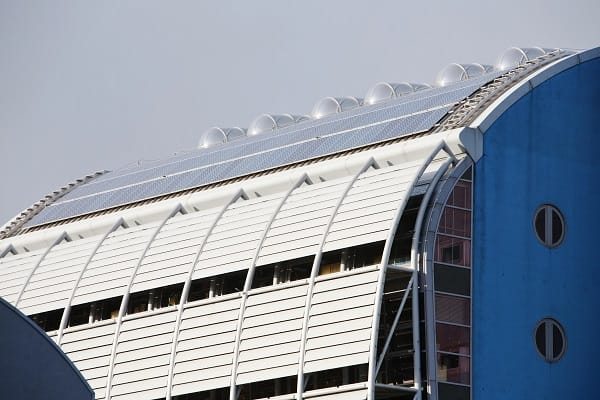When talking about the concept of creating a more sustainable future, it’s easy to point fingers and redirect responsibility to others. “The government should do more,” or “It’s up to big corporations,” are common refrains. But here’s the thing: sustainability is a shared responsibility. It’s on all of us – governments, households, and, yes, businesses. Here in the UK, we’re witnessing the real-time impact of climate change: unexpected heatwaves, unpredictable rainfalls, and the sudden chill of cold snaps. It’s clear that we need to act, and fast. But the question is, where to begin?
The shared responsibility: Who has a role to play
Before diving into specifics for businesses, let’s understand the broader picture. There is no denying that governments play a massive role in setting policies and regulations that affect sustainability. Households can adopt greener lifestyles. Whether it’s recycling more, cutting down on car usage, or using energy-efficient appliances, every small change counts. When multiplied by millions of households, these changes can make a huge difference. Now, let’s talk business. Some might think that making a business greener means sacrificing profits. That’s a myth. In fact, many sustainable practices not only help the planet but can also save businesses money in the long run.
Four achievable green changes for businesses
If you’re a business owner or part of the decision-making process, here are four practical steps you can take to make your company greener:
1. Embrace renewable energy
Did you know we Brits have a secret superpower? Our island, with its coastal charm and offshore territories, is a goldmine for renewable energy, especially wind and solar. It might sound like a surprise, given our reputation for, well, let’s say ‘less than tropical’ weather. We’re ideally placed to make the most of wind farms. Contracting wind energy providers is the smart move. And, speaking of our unpredictable weather, let’s mention solar energy. Today’s solar panels have had some serious tech upgrades; they’re like smartphones, getting smarter even when the conditions aren’t perfect. They can pull energy even on those typical cloudy days. Imagine converting your business’s rooftop or, if you’ve got the space, a bit of land into your power station. Besides, who wouldn’t like a smaller electricity bill? And, with the way energy prices fluctuate, solar can be that steady partner you’ve been looking for.
2. Reduce, reuse, recycle
You’ve probably heard the mantra “Reduce, Reuse, Recycle” so many times it’s practically a catchy tune in your head. Firstly, let’s talk rubbish. Take a closer look at regular waste audits. You might just uncover those waste culprits that could’ve been reduced or, even better, avoided. Now, let’s mention suppliers. Every supply chain link, from packaging to product, should be thinking green. By being a tad more picky with your suppliers, your environmental footprint can shrink before your products arrive through your door. Inside your space, why not create recycling hotspots? Colour-code and label bins so that everyone knows where to dispose their paper, plastics, or organics. And, give your team a quick ‘how-to’ on the art of recycling. Before you chuck something out, have a think. Can that old, tired-looking office chair get a makeover instead of facing retirement? Could those cardboard boxes stack up for storage? It’s all about getting creative and making the most of what we have. Lastly, there are those special items, like e-waste, that need a bit more attention. Team up with local recycling specialists or NGOs that know their stuff. They’ll ensure these items aren’t destined for landfill but are reborn in another useful form.
3. Implement green transportation
When we talk about leaving footprints, the kind from our vehicles might just be the most noticeable. The way we move our goods, our services, and even ourselves around can really leave a mark on our planet.
Now, here’s where the exciting bit comes in. Transportation isn’t what it used to be. The UK’s charging infrastructure is expanding faster than you can say “electric vehicle”, and thanks to some pretty nifty advancements in EV tech, going electric isn’t just a dream – it’s becoming the norm. These sleek machines are silent heroes: no noisy tailpipes, no pollutants, and, let’s be honest, they’re kinder on the wallet in the long run. Got a fleet of vehicles? Switching them out for electric models could be like putting money right back into the business coffers.
But it’s not just about the cars we drive. How about a tip of the hat to those who ditch four wheels for two – or none! Consider giving a nudge to your employees to take the green route. Maybe it’s cycling, maybe it’s their own two feet, or perhaps it’s sharing a ride. Throwing in a few perks like bike racks, changing rooms, or even chipping in for their public transport can work wonders. It’s not just about reducing emissions; it’s about championing a healthier way to commute, both for the planet and the people.
4. Educate and engage employees
The journey to sustainability isn’t a solo expedition. It’s more of a team road trip, with everyone in your business hopping aboard. And guess who’s steering this eco-friendly vehicle? Your employees. They’re the beating heart of any organisation, and when it comes to going green, they’re the key players on the field. Every employee, from the front desk to the top floor, has unique insights and ideas. Maybe it’s an eco-friendly tweak to a process or a brainwave about reducing waste. Why not set up a ‘Green Ideas’ hub? It could be a classic suggestion box or a digital platform where everyone can share and discuss their planet-friendly proposals. Lastly, a little recognition goes a long way. Spotting and celebrating those who go above and beyond in the name of sustainability? That’s pure gold. It could be the person championing a paperless day, the team launching a fantastic green initiative, or just someone cycling to work. A pat on the back, a shout-out, or even a reward – these gestures spark motivation, proving that every green effort, big or small, truly counts.

Photo by Akil Mazumder
The way forward
Greening your business isn’t just a trend; it’s a necessity. We’re at a pivotal moment in our planet’s history, and the actions we take now will determine the world our children and grandchildren inherit. For businesses in the UK, the transition to a more sustainable model is not just an opportunity to do good but also to stay ahead of the curve. As consumers become more eco-conscious, businesses that prioritise sustainability will stand out.
Sustainability isn’t just about the polar bears or melting glaciers. It’s about ensuring a brighter, safer, and prosperous future for everyone. So, whether you’re a titan of industry, a small business owner, or just someone reading this blog post on their lunch break, remember: it’s on all of us to play our part.





Leave a Comment